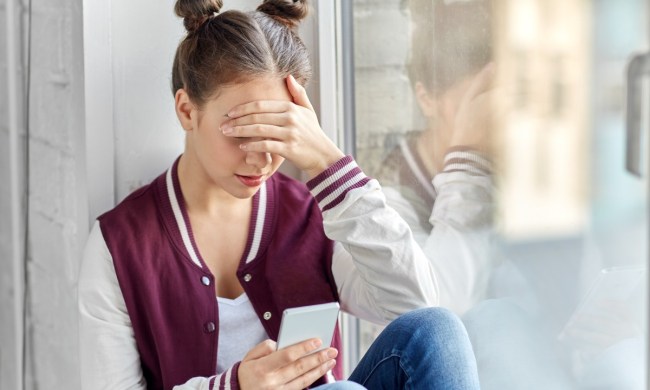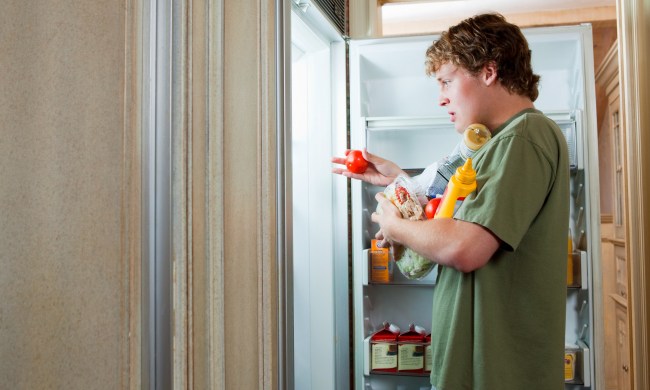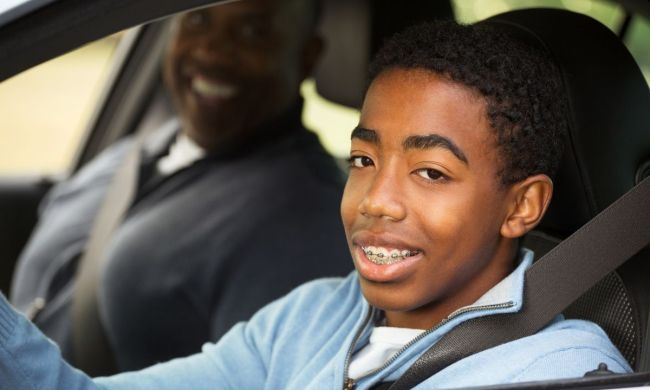As we continue to battle the current health pandemic, many parents find themselves struggling with how to talk to their teens and tweens about the coronavirus. Thanks to smartphones and almost constant online connectivity, teens and tweens are inundated with information, misinformation, and opinions. Having an open dialogue with their older children allows parents to empower their teens and tweens to advocate for their own personal well-being and help them make informed, safe choices when it comes to the coronavirus. Thankfully, talking about COVID-19 with your tween isn’t as difficult as it may seem. In fact, talking to kids about the pandemic can be fairly straightforward.
Just like adults, many teens and tweens are struggling with feelings of uncertainty and anxiety as a result of the health pandemic. News and information about the coronavirus are everywhere, so it’s important that parents speak with their older children not only to help educate them as a means of keeping them safe but to also help them recognize how to spot misinformation.
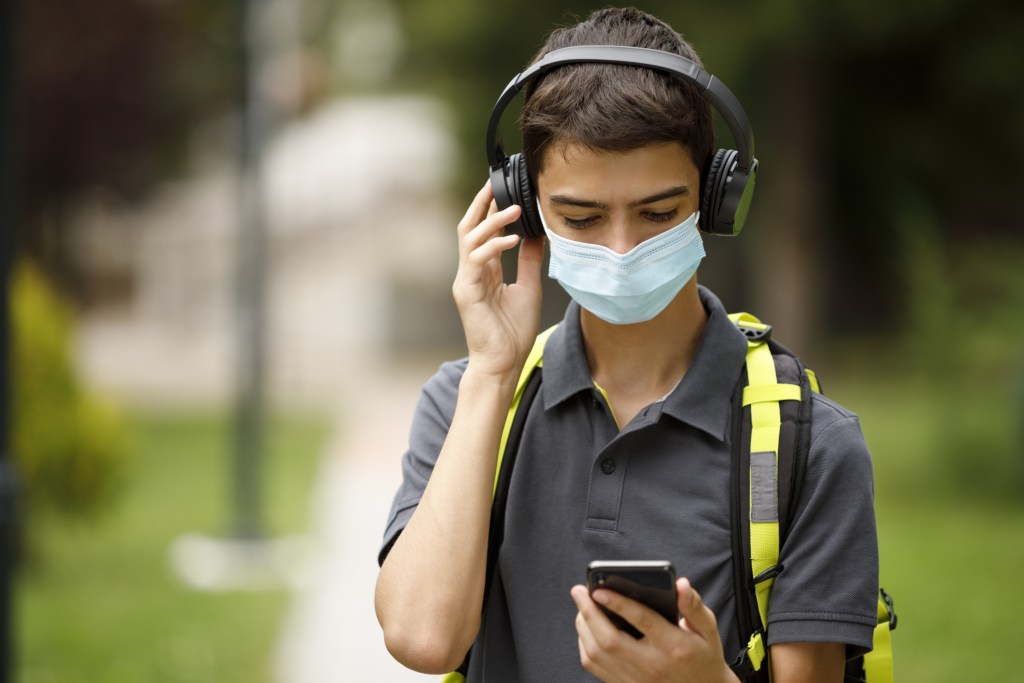
Teens and tweens vs. younger kids
How you talk to your kids about the pandemic depends a lot on how old they are. Tweens and teens are more exposed to endless information about the coronavirus thanks in part to social media, smartphones which give them non-stop access to online news sites, their peers, and even their teachers. So much of their lives, from school to sports to extracurricular activities have been impacted by the past year, and it’s no surprise they may feel overwhelmed and anxious. While younger children may have more basic questions about the pandemic that require simple answers, teens and tweens may seek more information to help educate themselves.
Check your own anxiety
Parents set the tone when speaking to their teens and tweens, which is why it’s so important that even if they are experiencing their own anxiety over the pandemic they speak to their children about it in a calm manner. If a teenager sees their parent is nervous about the coronavirus, they will pick up on that emotion. Dr. Janine Domingues, a child psychologist at the Child Mind Institute explains that parents have the opportunity to control how they deliver information about the pandemic to their children. “You take on the news and you’re the person who filters the news to your kid,” she says. “When you’re feeling most anxious or panicked, that isn’t the time to talk to your kids about what’s happening with the coronavirus.” Psychologist Richard Bromfield told The New York Times that “rather than just react, parents should reflect, think and plan to talk to their child with thoughtfulness, carefulness, and steadfastness”
Be honest
Clinical psychologist Wendy Mogel told The New York Times that parents need to be honest when talking about the coronavirus with their older kids. “Answer their questions, and if you don’t know the answer, be honest. You can research the answers together,” she said, noting that there is so much information available it’s understandable for parents to not have all the answers. Parents should also be honest about their own fears while discussing what steps they can take to help ensure their own safety.
Check-in with them
Even if teens and tweens are acting like the health pandemic isn’t bothering them, many are still suffering from fear and anxiety. Bromfield added that just because older teens and tweens don’t react the same way a younger child might when feeling afraid, it doesn’t mean those emotions aren’t there. “I think we forget that a 17-year-old still has a little bit of that younger child in them, and they too are frightened and vulnerable,” he said. “Parents should have one leg in the worry and one leg in the place of constructive help, comfort, and validation of how hard it is to be experiencing this,” he added, noting that it’s important for parents to regularly check in with their older kids to see how they are feeling.
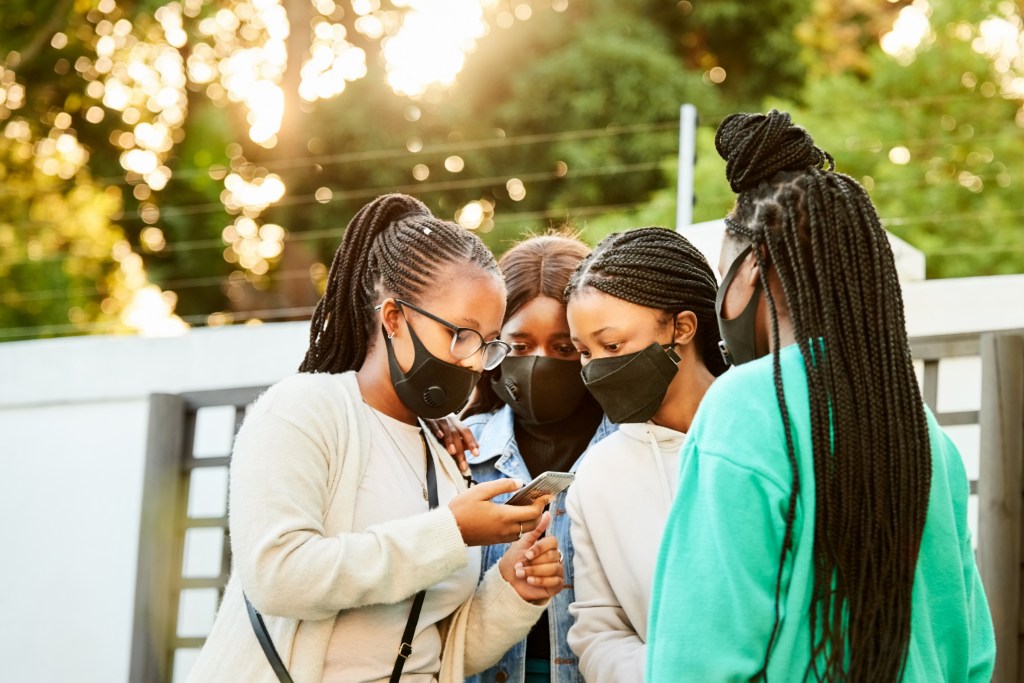
Deliver the facts
With so much information about the pandemic at their fingertips, it’s important that parents teach their children how to filter through it all. Having an open dialogue allows teens and tweens to discuss what they’ve read or heard about the coronavirus. This gives parents the opportunity to speak with their kids about where to find trustworthy, science-based information and how to identify ‘fake news.’ Psychology Today suggests taking the opportunity to point teens and tweens towards reliable news sources while also enforcing ‘tech timeouts’ so they don’t become overwhelmed with information.
Encourage conversation
While experts suggest limiting the scope of information parents deliver to younger children, they also encourage conversation with teens and tweens. Kids Health recommends parents talk with their teens and tweens often about the information they’re receiving, and ask them questions about how they’re feeling. This can help create greater trust between parents and their teens so they feel more comfortable coming to their parents if they’re feeling scared, overwhelmed, or even concerned.
Unfortunately, we don’t know when the coronavirus health pandemic is going to end so it’s important that teens and tweens know they can talk to their parents about their fears and concerns. Educating kids on how to filter and process information in an informed way will not only help them navigate this current pandemic but give them tools they can use throughout their lives.

